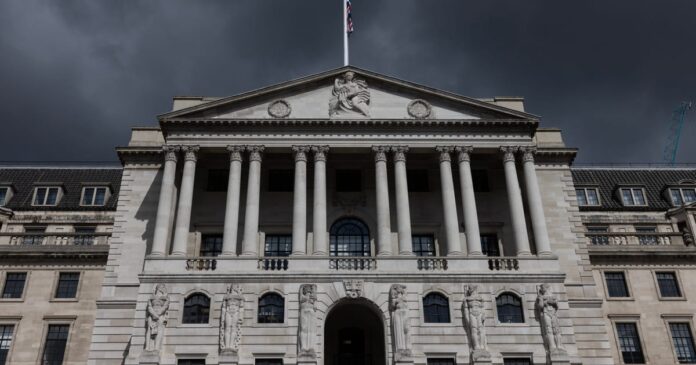The U.K. labor market has never been hotter according to official estimates, but contradictions in the data represent a headache for Prime Minister Rishi Sunak and the Bank of England.
According to estimates released by the U.K.’s Office of National Statistics on Tuesday, British wages rose by record-high levels in July, frustrating hopes that the hot labor market would cool with rising interest rates while putting pressure on the Bank of England to keep on tightening.
Despite efforts to keep wages down, average U.K. earnings excluding bonuses rose by 7.8 percent in July from the year before, the highest level recorded since data-gathering began in 2001.
The growth was driven in large part by National Health Service workers, who negotiated wage increases and one-off payments in June following strikes earlier in the year.
The earnings figures are up from May’s record-high of 7.3 percent, overshooting forecasts by 0.4 percentage points, albeit with part of the increase due to the continued bounce-back from the pandemic.
Other economic estimates released Tuesday, however, pointed to signs that the BoE’s hikes could be feeding into the economy at last, with strong evidence that the jobs market was cooling and that hiring difficulties were easing.
“The unemployment rate increased by 0.2 percentage points to 4.2 percent, while the ratio of unfilled job vacancies to unemployed workers now stands at 0.73, down from a peak of almost 1.1 and very nearly back to the pre-pandemic high of 0.64,” James Smith, developed markets economist at ING bank wrote in a note to clients.
BoE Governor Andrew Bailey had referred to the vacancy ratio frequently in his last press conference, Smith added, hinting it was being closely watched by policymakers.
Headwinds were also visible in manufacturing, where wages slowed in July year-on-year, while overall unemployment rose by 0.3 percent in the three months leading up to June.
Parsing conflicting data messages
BoE officials nonetheless are likely to remain focused on the wage data, especially if July’s inflation release, due on Wednesday, also comes in hotter than expected. Bond traders are now fully pricing in a 0.25 percentage point hike at the next policy meeting.
“The wage data clearly shows a lot of wage pressure,” Marc Ostwald, chief economist of ADM Investor Services International, told POLITICO. “It does look to border on a wage-price spiral.”
The Bank of England has already raised rates to 5.25 percent in an effort to combat inflationary pressures that remain largely unabated, with headline inflation now at 7.9 percent. Analysts, however, expect Wednesday’s inflation release to register a fall in the headline July figure to 6.7 percent on the year, down 1.2 percent from the June figure.
But the contradictory data could mislead rate-setters, forcing them to cherry-pick data that suits their policy stance — potentially resulting in yet more damage to an already-squeezed economy that has put Sunak’s prime ministerial future in doubt.
If that’s the case, over-tightening could be a “real danger,” Ostwald added. “There is this pressure put on the Bank of England, but on the other hand they have to think about what they’ve done already. They’ve already hiked 525 basis points so far, and are probably expected to do another 25 or 50 — what difference will another 25 make when you’ve already done 500?”
Ostwald added: “There’s a point where you have to take stock rather than look like you’re reacting to every incoming data and look like, to use Grace Jones’ phrase, you’re a slave to the rhythm.”


